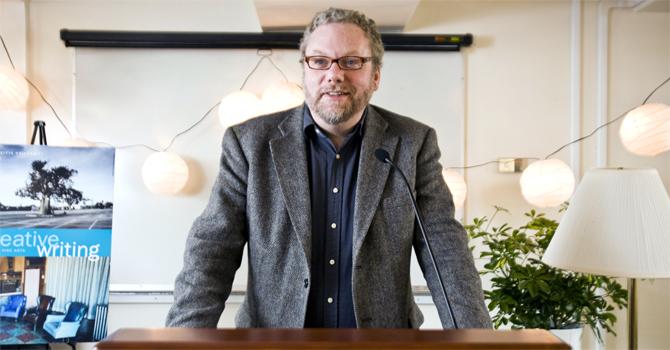
By Timothy Askew; reprinted from Inc. with the kind permission of Timothy Askew.
Thirteenth century Sufi mystic and poet Jalaluddin Rumi once said, “Don’t be satisfied with stories, how things have gone with others. Unfold your own myth.”
Among Steve Jobs’s many entrepreneurial insights was a perspicacious observation that creativity emerges out of a synthesis of “diverse experiences”–an amalgamation of seemingly unrelated dots that later link up as a new thing. He famously said, “It is in Apple’s DNA that technology alone is not enough. It is technology married with the liberal arts, married to the humanities, that yield the results that make our hearts sing.”
Invention does not come out of specialization or getting better and better at what we already do well. It comes from jolts that shake us out of the comfortable and the known. We need to look for people and associations that force us out of our winning strategies and smug successes. (Note my Inc. column of November 7, 2016—Want an Easy Way to Open Up Your Mind and Improve Your Business Skills? Join a Book Club.)
Steve Jobs’s intuition has been confirmed by the work of Duke University sociologist Martin Ruef and others. In 2012 Ruef studied the personal and business relationships of 766 graduates of the Stanford Business School who founded their own companies. He discovered that the entrepreneurs with the greatest diversity of friendships scored over three times higher on measurements of creativity and innovativeness. They clearly were able to synthesize their wide-ranging social circles into profitable new concepts.
Or take the case of networking. Most businesspersons network with people in their own field. This can be a killer for creativity and new ideas. Note the Harvard Business Review article by Dorie Clark in October 20, 2016, titled “Start Networking With People Outside Your Industry.” Clark points to the acute danger of falling into lemming-like group think. She says, “Some people end up with a narrow network because of inertia, but others don’t extend themselves because they just don’t see the potential for return.”
This is short-term thinking and the death of out-of-the-box entrepreneurial vision. Quoting Clark again, “The best reason to build a professionally diverse network isn’t about what you’ll get out of those relationships. It’s to fulfill personal curiosity and develop yourself as a person; professional or monetary ROI is a happy coincidence.”
I couldn’t agree more.
My friend Sydney Finkelstein, author of the business best-seller Superbosses and professor at Dartmouth’s Tuck School of Management, wrote a thoughtful piece for the BBC last week titled “Algorithms Are Making Us Small Minded.” He discusses the down sides and dangers of ubiquitous curation saying, “The digital revolution is enabling us to live happily in our own worlds, and in the process closing down opportunities for originality.”
A lot of this curation we do to ourselves because we are lazy and love the cozy ambience of our comfortable worlds of preconception. We like being narrow-minded while not admitting that’s what we are.
Our magical algorithms make it oh so easy for us to not only be manipulated, but to actually choose to stay agreeably ensconced in our own private Idahos. As Sydney again puts it, “The consequences of living in our algorithm-enabled straitjackets are not trivial. Intellectually and socially we are paying a price.”
We need those things which shock us out of our normal patterns if we want to be creative leaders and hopeful innovators. This is an under-discussed business and societal conundrum: Are our brilliant algorithms turning us into self-aping zombies?
Artist Marcel Duchamp once said, “I force myself to contradict myself in order to avoid conforming to my own taste.” Indeed. Thank you Marcel.
 Tim Askew is the owner of sales firm Corporate Rain International and a member of the Inc. Business Owners Council. He has several advanced degrees, and has been a tennis pro, actor, opera singer, Broadway producer, dishwasher, bartender, minister, and college assistant dean. Askew is the author of the new book The Poetry of Small Business (available on Amazon). @TimothyAskew
Tim Askew is the owner of sales firm Corporate Rain International and a member of the Inc. Business Owners Council. He has several advanced degrees, and has been a tennis pro, actor, opera singer, Broadway producer, dishwasher, bartender, minister, and college assistant dean. Askew is the author of the new book The Poetry of Small Business (available on Amazon). @TimothyAskew












